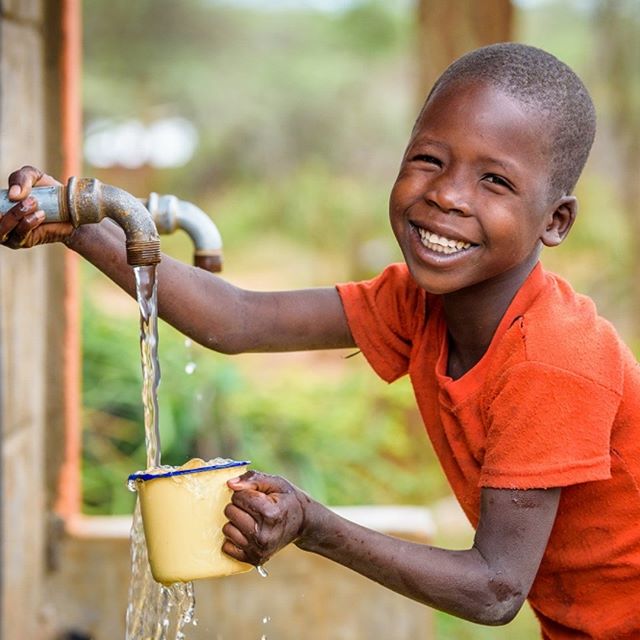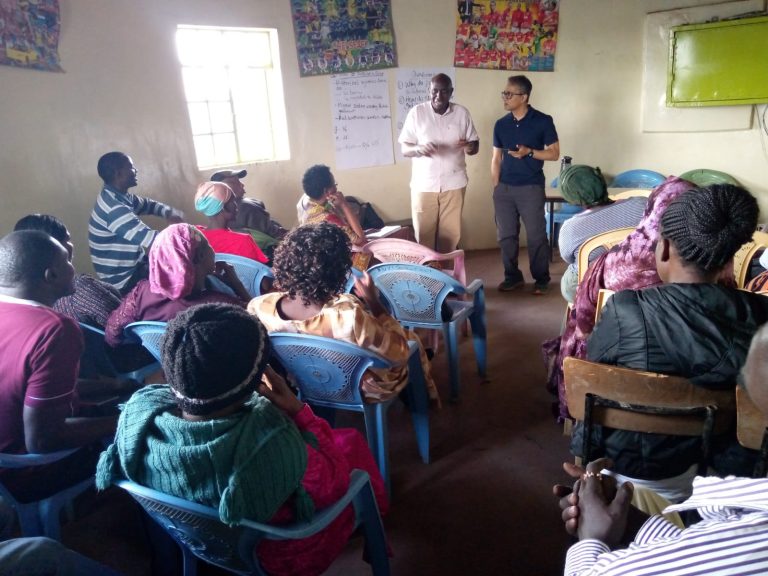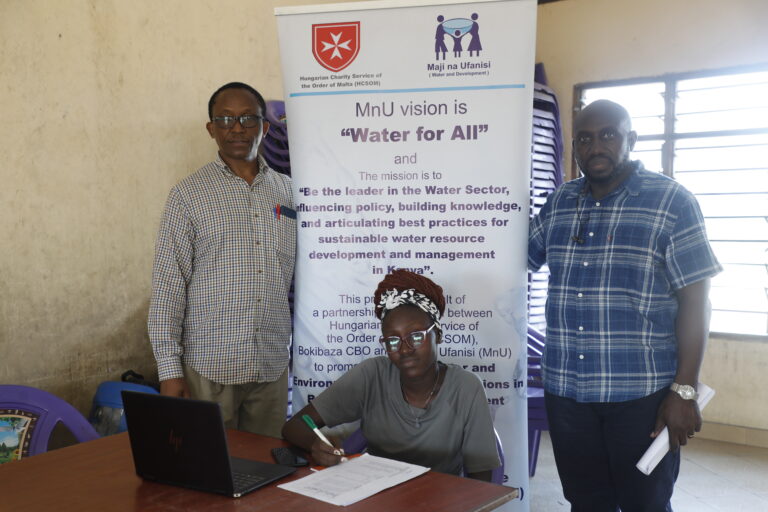Imagine waking up every day knowing that the most basic necessity for life—clean water—is out of reach. For billions of people around the world, this is a harsh reality. Access to clean water is not just a need; it is a fundamental human right. However, despite global progress, many communities still struggle to secure safe water for drinking, cooking, and sanitation.
In this article, we will explore why clean water is recognized as a basic human right and what steps can be taken to ensure universal access. We’ll delve into the challenges of achieving this goal, the role of WASH (Water, Sanitation, and Hygiene) programs, and how sustainable water solutions can make a difference. We’ll also highlight the efforts of organizations like Maji na Ufanisi in driving impactful change.
A Detailed Explanation of Clean Water as a Human Right
Why is Clean Water a Human Right?
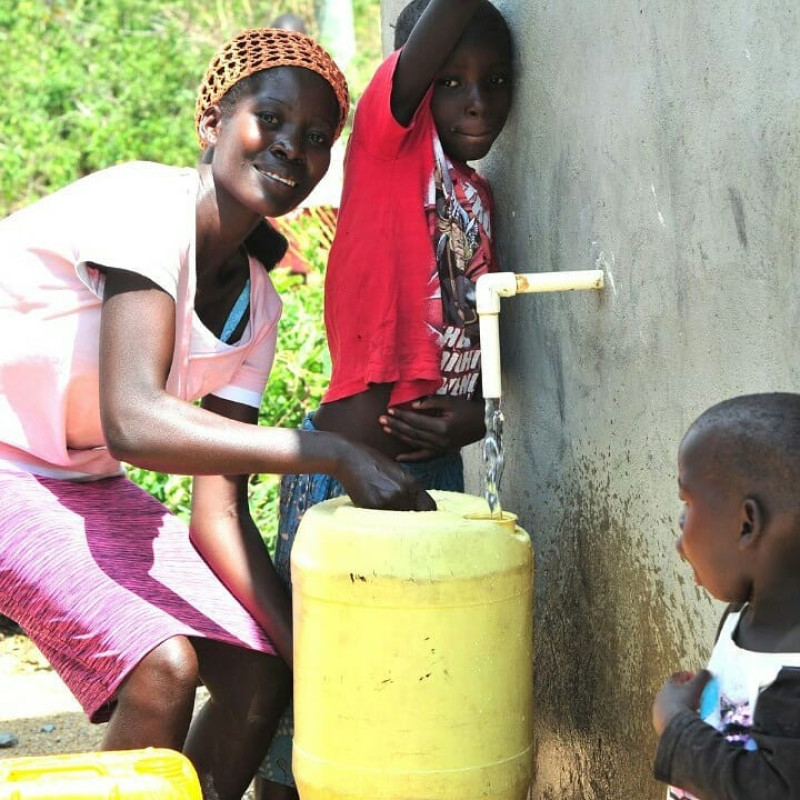
Access to clean water is essential for life, health, and dignity. The United Nations General Assembly explicitly recognized the right to safe and clean drinking water and sanitation as a human right in 2010. This right entitles everyone to sufficient, safe, acceptable, physically accessible, and affordable water for personal and domestic use.
However, this right is often violated due to factors like poverty, environmental degradation, and political instability. The consequences of water scarcity are severe, leading to waterborne diseases, malnutrition, and even conflicts.
The Global Water Crisis: A Challenge to Human Rights
Today, around 2.2 billion people lack access to safely managed drinking water services. This crisis is particularly acute in Sub-Saharan Africa and parts of Asia, where infrastructure is lacking and water sources are often contaminated. The global water crisis is not just a technical problem; it is a human rights issue that requires urgent and collective action.
The Role of WASH Programs in Promoting Water Rights
WASH programs are vital in addressing the water crisis. These initiatives focus on improving water quality, sanitation, and hygiene practices, which are all interconnected aspects of human health and development. By implementing WASH programs, communities can reduce the incidence of waterborne diseases, improve public health, and empower individuals, especially women and children, who are most affected by water scarcity.
Sustainable Water Solutions: Paving the Way to Universal Access
Achieving universal access to clean water requires sustainable solutions. This means developing infrastructure that can withstand environmental challenges, promoting water conservation practices, and utilizing innovative technologies like water purification systems and rainwater harvesting. These solutions must be adaptable to the unique needs of each community to ensure long-term success.
Also read: Innovative Solutions for Sanitation and Hygiene: Exploring the WASHEM Approach
Here’s Everything Else You Need to Know
How Can We Achieve Universal Access to Clean Water?
1. Strengthening Infrastructure and Investment
One of the primary barriers to clean water access is inadequate infrastructure. In many developing regions, existing water systems are either outdated or non-existent. Strengthening infrastructure involves building new water supply systems, repairing and maintaining existing ones, and ensuring that these systems are resilient to climate change and natural disasters.
2. Promoting Water Conservation and Efficient Use
Water scarcity is exacerbated by the overuse and wastage of water resources. To achieve universal access, it is crucial to promote water conservation at all levels—from individual households to large-scale agricultural practices. Public awareness campaigns, education, and policies that encourage the efficient use of water can significantly reduce wastage.
3. Implementing Innovative Technologies
Innovative technologies offer new ways to tackle the water crisis. For example, solar-powered water purification systems can provide clean drinking water in off-grid areas, while rainwater harvesting systems can supplement water supplies in regions with irregular rainfall. These technologies need to be affordable and scalable to make a meaningful impact.
4. Ensuring Community Involvement and Empowerment
Community involvement is key to the success of any water project. Local communities must be empowered to manage and maintain their water resources. This includes training local leaders, involving women in decision-making processes, and ensuring that the community has ownership of the water systems.
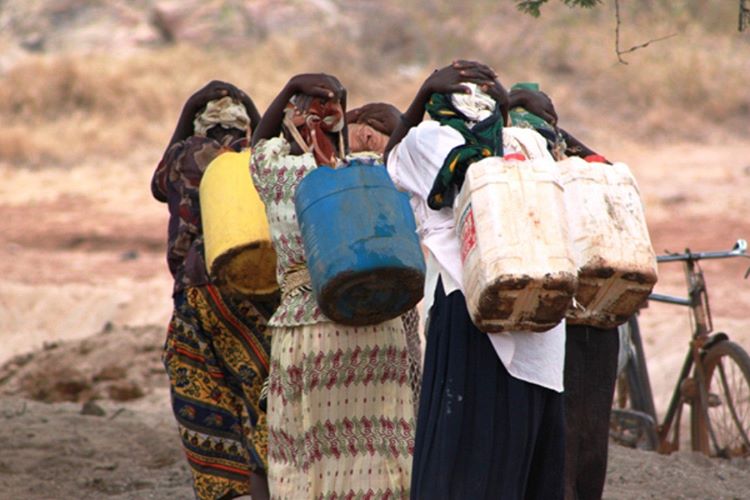
5. Addressing Climate Change Impacts
Climate change poses a significant threat to water resources. Increasing temperatures, changing precipitation patterns, and more frequent extreme weather events can disrupt water supplies. To protect water access, it is essential to integrate climate resilience into water management strategies. This includes adopting practices that reduce greenhouse gas emissions and adapting water infrastructure to withstand climate-related challenges.
How Maji na Ufanisi is Helping
Maji na Ufanisi (Water and Development) plays a critical role in addressing the global water crisis by focusing on sustainable and community-driven water solutions. With a mission to enhance the quality of life for underserved communities, the organization has developed a holistic approach that combines technical expertise, community involvement, and advocacy to ensure long-lasting access to clean water. By working closely with local communities, Maji na Ufanisi ensures that every project is tailored to meet the unique needs of its beneficiaries, leading to more effective and sustainable outcomes.
Community Engagement and Education
At the heart of Maji na Ufanisi’s approach is the belief that sustainable water solutions require the active participation and ownership of the communities they serve. The organization emphasizes the importance of community engagement from the very beginning of each project. This participatory approach involves communities in the decision-making process, allowing them to voice their needs, preferences, and concerns. By involving community members in planning and implementation, Maji na Ufanisi not only ensures that projects are culturally and contextually appropriate but also fosters a sense of ownership and responsibility among the beneficiaries.
Education is another cornerstone of Maji na Ufanisi’s strategy. The organization conducts extensive training sessions to educate community members on the importance of water conservation, proper sanitation practices, and the maintenance of water infrastructure. These educational programs empower individuals with the knowledge and skills needed to manage and sustain their water resources. For example, Maji na Ufanisi has implemented training programs for local water committees, equipping them with the technical know-how to maintain and repair water systems. This ensures that the benefits of the projects are sustained long after the initial implementation.
Additionally, the organization places a strong emphasis on gender inclusivity, recognizing that women and girls are often the primary collectors of water in many communities. By involving women in leadership roles within water committees and providing them with training, Maji na Ufanisi not only promotes gender equality but also enhances the overall effectiveness of water management efforts.
Sustainable Water Solutions
Maji na Ufanisi’s commitment to sustainability is evident in the range of innovative water solutions it implements. The organization understands that different communities face unique challenges, and as such, it employs a variety of techniques to address these diverse needs effectively.
One of the key solutions Maji na Ufanisi implements is the construction of boreholes. These deep wells tap into underground aquifers, providing a reliable source of clean water even in areas where surface water is scarce or contaminated. Boreholes are particularly effective in arid and semi-arid regions where other water sources may be unreliable. Maji na Ufanisi ensures that these boreholes are equipped with hand pumps or solar-powered pumps, making water retrieval accessible and environmentally friendly.
Rainwater harvesting is another sustainable solution championed by Maji na Ufanisi. This method involves collecting and storing rainwater for later use, providing a vital water source during dry seasons. The organization installs rainwater harvesting systems in schools, health centers, and households, ensuring that clean water is available year-round. These systems are designed with community input to ensure they are easy to maintain and use.
Water purification units are also a critical component of Maji na Ufanisi’s work. In areas where water sources are contaminated, the organization provides filtration and purification systems to ensure that the water is safe for drinking and other uses. These units range from simple, portable filters that can be used at the household level to more complex community-based purification systems. By providing these technologies, Maji na Ufanisi reduces the incidence of waterborne diseases and improves overall public health.
The organization also embraces the potential of low-cost, innovative technologies such as solar disinfection (SODIS), which uses sunlight to purify water stored in transparent containers. Such methods are not only affordable but also scalable, making them suitable for widespread adoption in resource-limited settings.
Advocacy and Awareness
Beyond implementing water projects, Maji na Ufanisi is deeply committed to advocacy and raising awareness about the human right to clean water. The organization understands that long-term solutions to the water crisis require changes at the policy level, as well as increased public awareness about the importance of water conservation and equitable distribution.
Maji na Ufanisi actively engages in advocacy at the local, national, and international levels. The organization works to influence water policies and legislation, pushing for frameworks that recognize and protect the right to water for all individuals. This includes advocating for increased government investment in water infrastructure, the enforcement of water quality standards, and the prioritization of marginalized communities in water distribution plans.
On the international stage, Maji na Ufanisi collaborates with global networks and coalitions to amplify the voices of those affected by water scarcity and to promote global water security. The organization participates in international conferences, such as World Water Week and the United Nations Water Conference, where it shares insights from its projects and advocates for more robust international commitments to achieving universal access to clean water.
In addition to its advocacy work, Maji na Ufanisi runs extensive awareness campaigns to educate the public about the importance of water conservation, the impacts of climate change on water resources, and the need for sustainable water management. These campaigns utilize various media platforms, including social media, radio, and community meetings, to reach a broad audience. The organization often highlights success stories from its projects to demonstrate the tangible benefits of investing in sustainable water solutions.
Maji na Ufanisi also recognizes the power of storytelling in advocacy. The organization collects and shares personal stories from the communities it serves, bringing to light the real-life challenges and triumphs of those who have gained access to clean water. These stories humanize the issue and inspire action among policymakers, donors, and the general public.
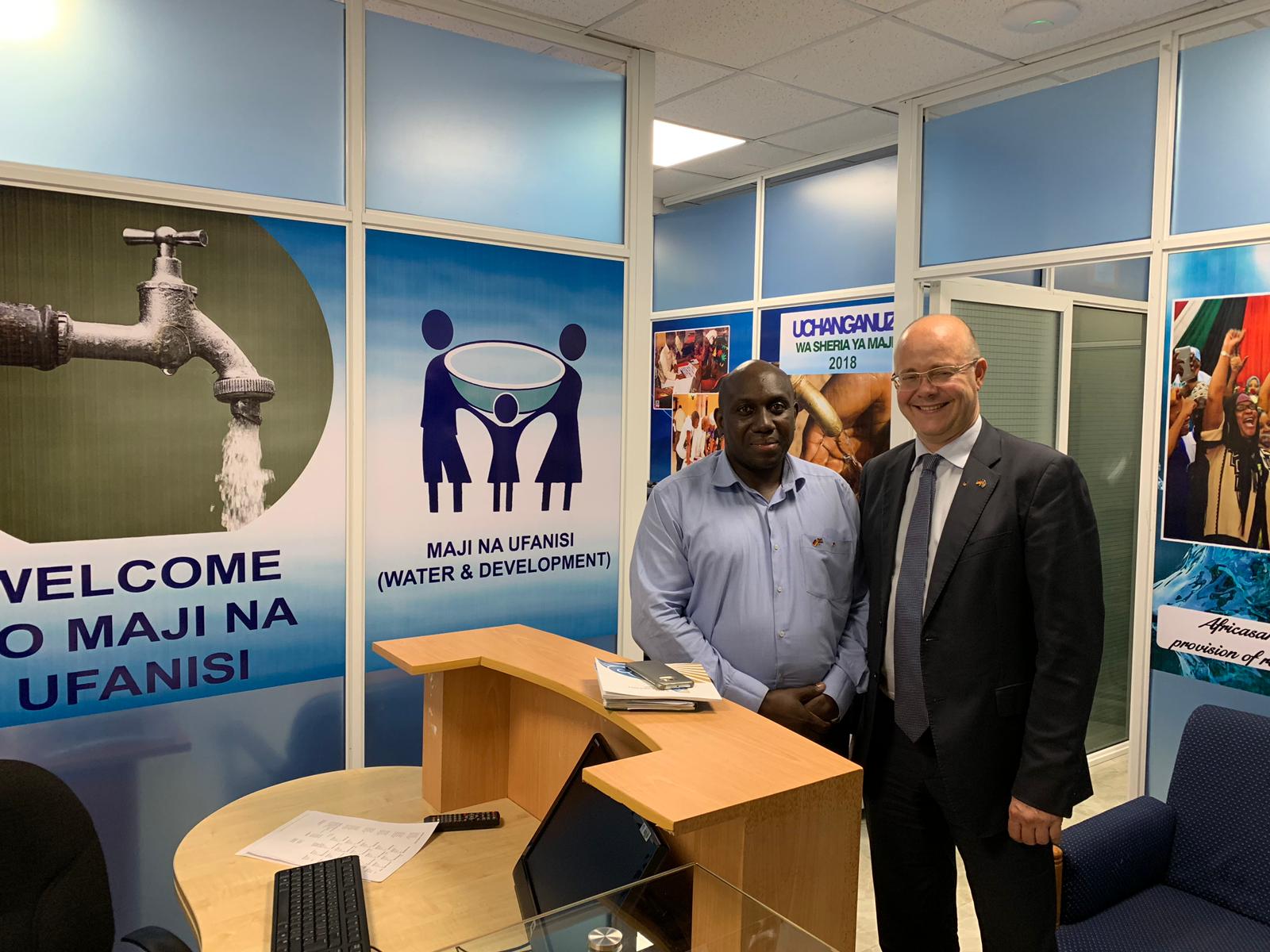
Capacity Building and Partnerships
Recognizing that achieving universal access to clean water is a monumental task, Maji na Ufanisi emphasizes the importance of building local capacity and forging strategic partnerships. The organization collaborates with local governments, NGOs, and private sector partners to leverage resources, share expertise, and scale up successful models.
Maji na Ufanisi provides capacity-building programs to local government officials and water management bodies, ensuring that they have the skills and knowledge needed to manage water resources effectively. These programs cover a wide range of topics, including water governance, financial management, and the integration of climate resilience into water planning.
Through partnerships with other organizations, Maji na Ufanisi can implement more comprehensive water projects that address multiple aspects of community development. For example, collaborations with health organizations allow for the integration of water and sanitation improvements with health initiatives, resulting in better overall outcomes for the communities.
By working together with diverse stakeholders, Maji na Ufanisi can achieve greater impact and move closer to its goal of ensuring that everyone, everywhere has access to clean water.
Final Word
Universal access to clean water is not just an ideal; it is a necessity. By recognizing clean water as a basic human right and taking concrete actions, we can move closer to a world where everyone has access to safe and sufficient water. Through sustainable solutions, community engagement, and continued advocacy, organizations like Maji na Ufanisi are paving the way for a future where clean water is a reality for all.
FAQs
1. What is the importance of clean water as a basic human right? Clean water is essential for life, health, and dignity. It is recognized as a basic human right because it is fundamental to survival and well-being.
2. How does the global water crisis affect human rights? The global water crisis undermines human rights by depriving individuals of access to safe drinking water, leading to health issues and limiting opportunities for development.
3. What are WASH programs, and why are they important? WASH programs focus on Water, Sanitation, and Hygiene. They are important because they help improve public health by providing access to clean water and promoting hygiene practices.
4. How can innovative technologies help achieve universal access to clean water? Innovative technologies like solar-powered water purifiers and rainwater harvesting systems can provide clean water in areas with limited infrastructure.
5. What role do communities play in ensuring access to clean water? Communities are essential in managing and maintaining water resources. Their involvement ensures that water projects are sustainable and effective.
6. How does climate change impact access to clean water? Climate change affects water availability by altering precipitation patterns and increasing the frequency of extreme weather events, making water management more challenging.
7. What are the main barriers to achieving universal access to clean water? The main barriers include inadequate infrastructure, water scarcity, climate change, and lack of investment.
8. How can individuals contribute to solving the global water crisis? Individuals can contribute by conserving water, supporting organizations like Maji na Ufanisi, and advocating for policies that protect water rights.
9. Why is sustainable water management important? Sustainable water management ensures that water resources are used efficiently and remain available for future generations.
10. How does Maji na Ufanisi contribute to achieving universal access to clean water? Maji na Ufanisi contributes by implementing community-driven, sustainable water projects and advocating for water rights at various levels.

